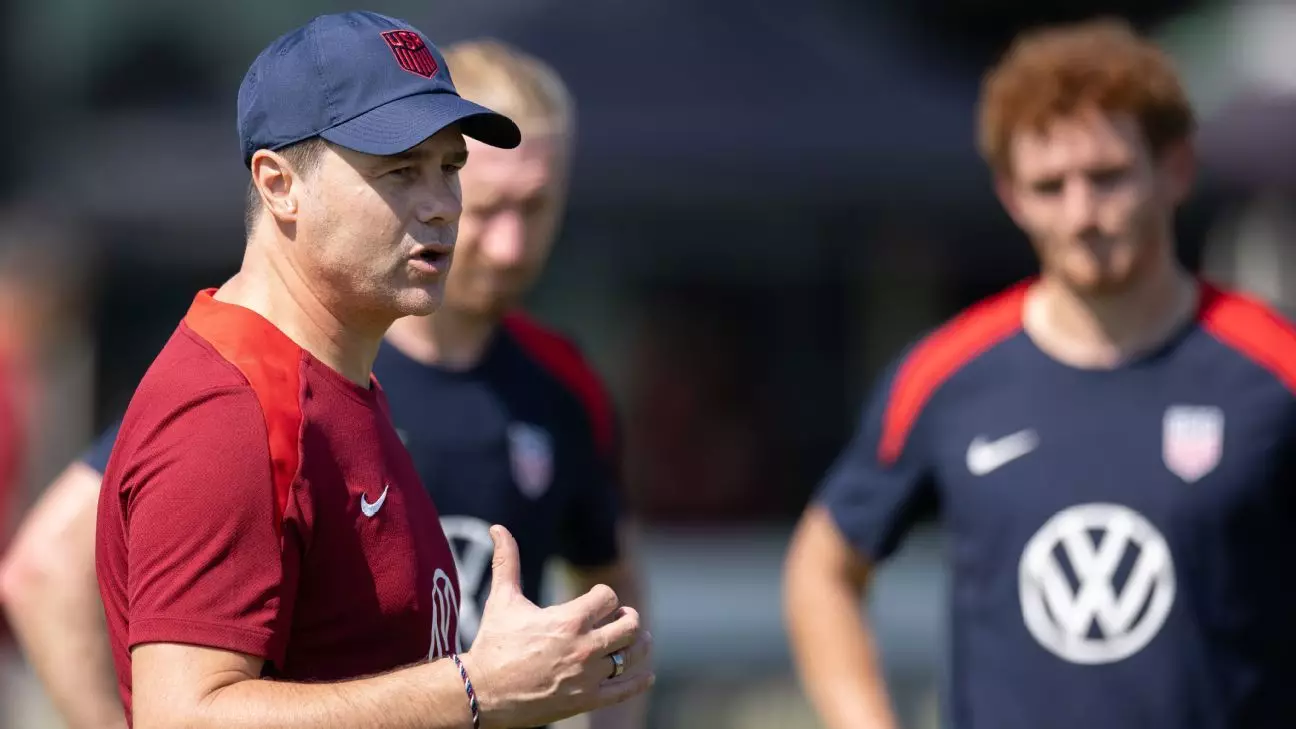The landscape of American soccer is evolving, and with it comes the promise of a new era under head coach Mauricio Pochettino. The Argentine manager, who took the helm of the United States Men’s National Team (USMNT), brings a wealth of experience and a transformative vision. His recent remarks about the inclusion of Major League Soccer (MLS) players highlight an important shift in the perception and utilization of domestic talent, as Pochettino aims to elevate the performance levels of the national team amid growing competition.
In recent years, MLS has often been criticized for its perceived lower level of competitiveness compared to premium leagues such as the Premier League or La Liga. However, Pochettino sees the league as a fertile ground for nurturing talent. By stating that players in MLS will have equal opportunities to represent the USMNT, he sends a strong message: domestic players are just as valued as their counterparts in Europe. This concept is pivotal for the growth of soccer in the U.S.; it encourages young athletes to pursue professional pathways in the domestic league with the understanding that their efforts can lead to national recognition. The coach’s insights suggest that the physicality and discipline observed within MLS can prepare players well for the rigors of international competition.
Pochettino’s coaching philosophy emphasizes the importance of competitiveness. His acknowledgment that U.S. soccer fans expect victory illustrates a culture that craves success — a sentiment that resonates particularly after the nation’s commendable performances in recent tournaments. By demanding higher expectations from his players, Pochettino aims to cultivate a mindset of relentless improvement and ambition. “[…] we need to increase the pressure over us,” he states, indicating that he believes this internal pressure will raise the standard of the entire program. This approach not only focuses on winning but also encourages players to see the national team as a prestigious platform worth striving for.
One notable aspect of Pochettino’s assessment is his emphasis on differentiating competitive matches from friendly fixtures. Competitive games are crucial for gauging a player’s mettle and suitability for the national team, a perspective that reflects his extensive coaching background where performances in high-stakes settings supersede those in less competitive environments. This discerning attitude also underscores a strategic approach to team selection, where individuals are evaluated based not merely on talent, but on their capability to deliver in pressure situations — something that resonates deeply with the ethos of American sports.
Pochettino’s attention toward players selected for the January training camp is particularly noteworthy. He assures them that performing well can lead to a national team call-up, fostering a spirit of competition and aspiration among players. This proactive communication is vital as it instills confidence and clarity regarding what is expected. For many players, especially those emerging from youth careers into the professional arena, knowing that their performances in MLS matter sets a constructive benchmark. It encourages them to compete fiercely, not only against their direct contemporaries but against the backdrop of an ever-growing roster of international talent.
The journey of the USMNT under Mauricio Pochettino represents a pivotal moment in American soccer history. By embracing the domestic league’s talent pool, focusing on a culture of success, and harnessing competitive environments, Pochettino is laying the groundwork for a robust soccer program. His vision reflects an understanding that while talent may vary, the belief in one’s potential and the drive to succeed can elevate a team’s performance. As American players strive to prove themselves in MLS, the hope is that they will rise to the occasion, not just for individual accolades but to put U.S. soccer on the global map. The future looks promising, and with the right guidance and awareness, the USMNT could finally realize its aspirations on the international stage.

Leave a Reply